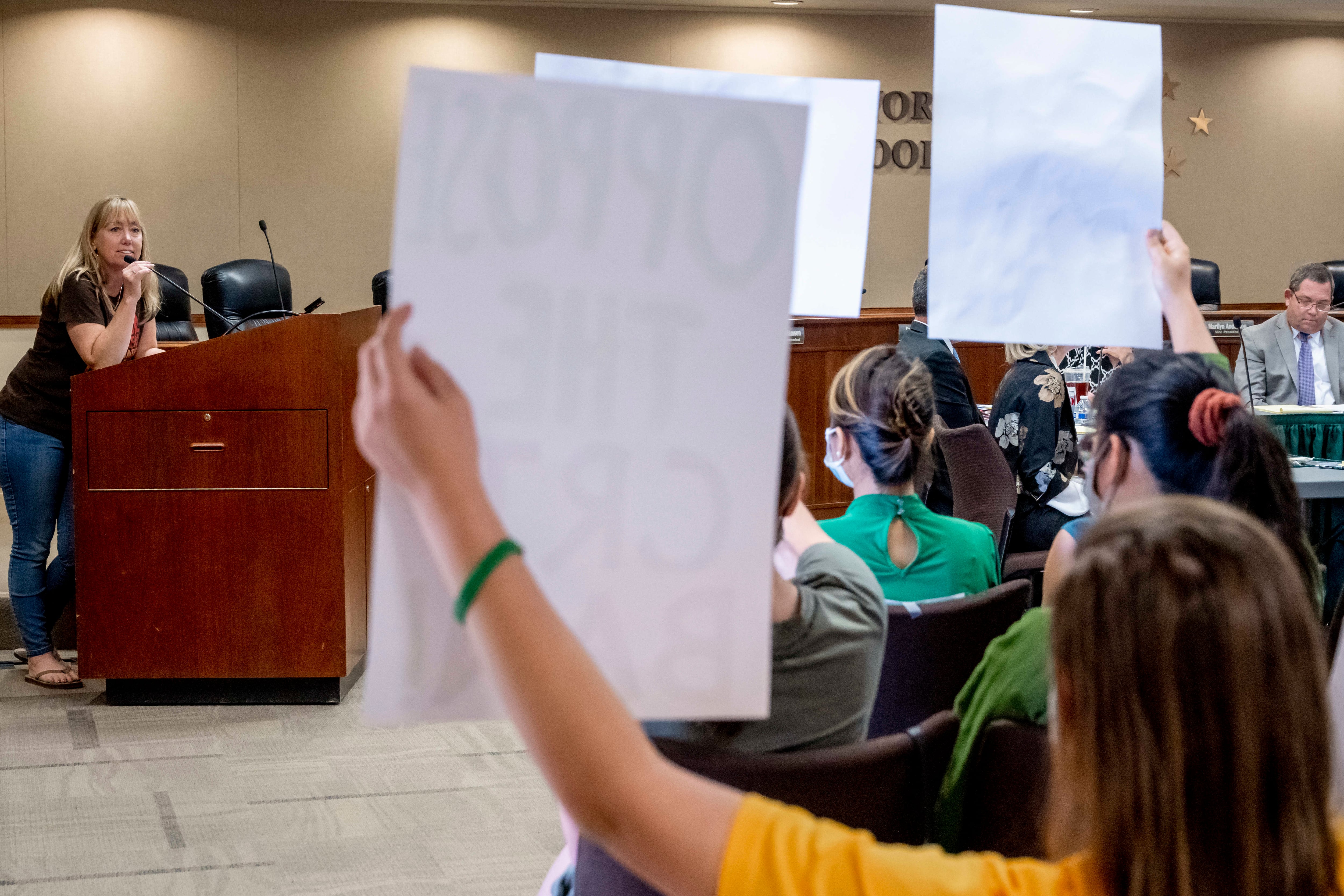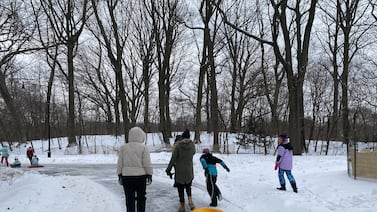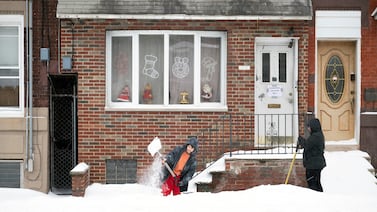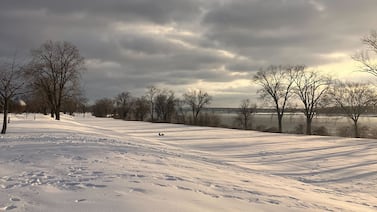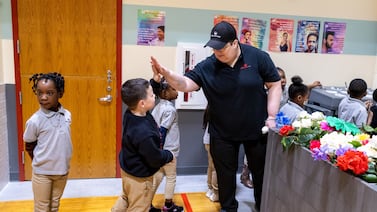High school principals stand on the frontlines of the education culture wars. What they’ve witnessed\ there is troubling.
In Nebraska, someone brought a gun to a school board meeting. In Iowa, a classroom discussion about current events dissolved into a shouting match. In California, one irate parent called a principal a “liberal communist moron,” and another told a school board: “We’re coming for you.”
Those incidents are examples of the hostility that increasingly surrounds schools, according to a new report based on a nationwide survey of public high school principals. Nearly 7 in 10 principals said that conflicts erupted in their school communities last academic year over hot-button political issues, and almost half said such controversies occur more frequently now than before the pandemic.
Schools in politically divided communities experienced a greater number of conflicts, which have been fueled by a conservative campaign to limit teaching about race and racism, curtail access to books deemed inappropriate, and restrict LGBTQ students’ rights, according to the report by researchers at UCLA and the University of California, Riverside.
In Palmer, Alaska, Principal Mary Fulp faced intense criticism this fall after word spread that a transgender student at Fulp’s high school had used the girls’ locker room. After a public outcry, the school board last month banned trans students from using bathrooms and locker rooms that match their gender identity.
“It is the hardest time to be an educator that I’ve ever experienced,” Fulp told Chalkbeat. “The pandemic, the political climate — it is all hard.”
In recent years, schools have moved ever closer to the center of the country’s hyper-partisan political debates as efforts to promote antiracism and LGBTQ-inclusion in some schools sparked a conservative backlash. Republican lawmakers in dozens of states have proposed laws that restrict lessons on contentious topics and erode protections for LGBTQ students.
Based on a nationally representative survey this summer of more than 680 high school principals, the new report shows how thoroughly that backlash has engulfed schools.
In different survey questions, half of principals said that parents or community members have tried to limit lessons on race and racism, roughly half said LGBTQ-inclusive policies have faced challenges, nearly 40% said social-emotional learning has come under attack, and a third said attempts have been made to stop students from accessing certain books.
Each of those challenges occurred more often in schools in politically divided communities, which the researchers defined as those congressional districts where former President Donald Trump received around half of the vote in the 2020 presidential elections. The researchers attribute this not only to people with different values living in those communities, but also to efforts by conservative activists and politicians to rile up parents for political gain.
“What’s changed in the last four years is this targeting public schools as the site of conflict,” said UCLA Professor John Rogers, who directs the school’s Institute for Democracy, Education and Access. “It’s not just that schools are mirroring these broader dynamics, but they become the theater in which these conflicts are playing out.”
Rogers co-authored the report with Joseph Kahne, a UC Riverside professor who co-directs that school’s Civic Engagement Research Group; other researchers also contributed to the study.
Previous studies and reporting have shown how the new laws and public scrutiny have led teachers to cut short classroom discussions about racism and sexuality, either due to pressure from administrators or self-censorship. The new report centers high school principals, who often are well-known in their communities and subject to intense political pressure.
In addition to the survey, the researchers also interviewed more than 30 principals, who are given pseudonyms in the report. Able to speak freely due to the anonymity, the school leaders expressed frustration and fear about the effect that partisan clashes have had on their faculties and students.
Nearly 70% of principals said students have made disparaging remarks about classmates due to their political beliefs, and more than 60% said political disagreements have made classrooms more tense.
An Iowa principal said her teachers are scared of being “accosted by a student or a community member for what they’re teaching.” After some students started “screaming at each other” during class, the principal told the teacher to end class discussions about current events.
“There’s a level of intolerance and refusal to understand the other side that I haven’t seen before the pandemic,” a Tennessee principal told the researchers.
The principals also said that hostility toward LGBTQ students has become more common. In politically divided districts, about a third of principals said students made anti-LGBTQ remarks on multiple occasions last school year — three times the rate in 2018. Many parents also expressed anti-LGBTQ sentiments, the principals reported.
A California principal said some parents opposed policies meant to protect transgender students and lashed out at staffers for supporting LGBTQ students.
“My teachers, administrators, and nurses came to me on a weekly basis in tears because parents are shouting and cursing at them for doing their jobs,” the principal said. “One counselor described to me how a parent screamed at her on the phone and called her a ‘homo lover.’”
The distrust and even rage directed at schools has made it harder to hire and retain teachers, some principals said. The backlash has also created a chilling effect, with some school boards and superintendents restricting lessons about race and racism, according to the survey. Once again, the restrictions were most common in politically divided districts.
“My superintendent told me in no uncertain terms that I could not address issues of race and bias etc. with students or staff this year,” said a Minnesota principal quoted in the report.
The constant strain of trying to avoid or weather controversy has worn educators down, several principals said. A Massachusetts principal said criticism of him and his school has felt “nonstop” and “borders on harassment and bullying.”
“The past two years have been the hardest years of my career,” he told the researchers, “and they have left me worried about the future of public education.”
Still, the report does include examples of principals standing up for what the researchers call a “diverse democracy,” where people with different viewpoints and identities listen to one another and work together. Some school leaders defended the rights of LGBTQ students and encouraged frank classroom discussions about difficult topics, including racism.
Fulp, the Alaska principal, who was not part of the study, said she saw the recent controversy surrounding her school as an opportunity to model civility. She listened with an open mind even when community members disparaged her online and a parent confronted her in the post office. And she told her students that everyone deserve respect and protection, even after the board restricted transgender students’ rights.
“I feel like history is being written in our schools today,” she said. “So what story are we going to contribute to?”
Patrick Wall is a senior reporter covering national education issues. Contact him at pwall@chalkbeat.org.

